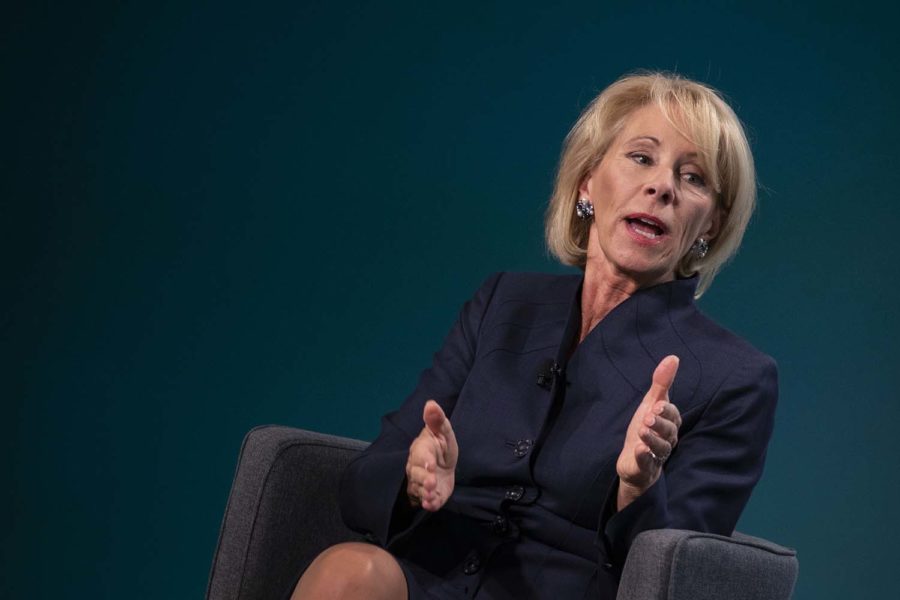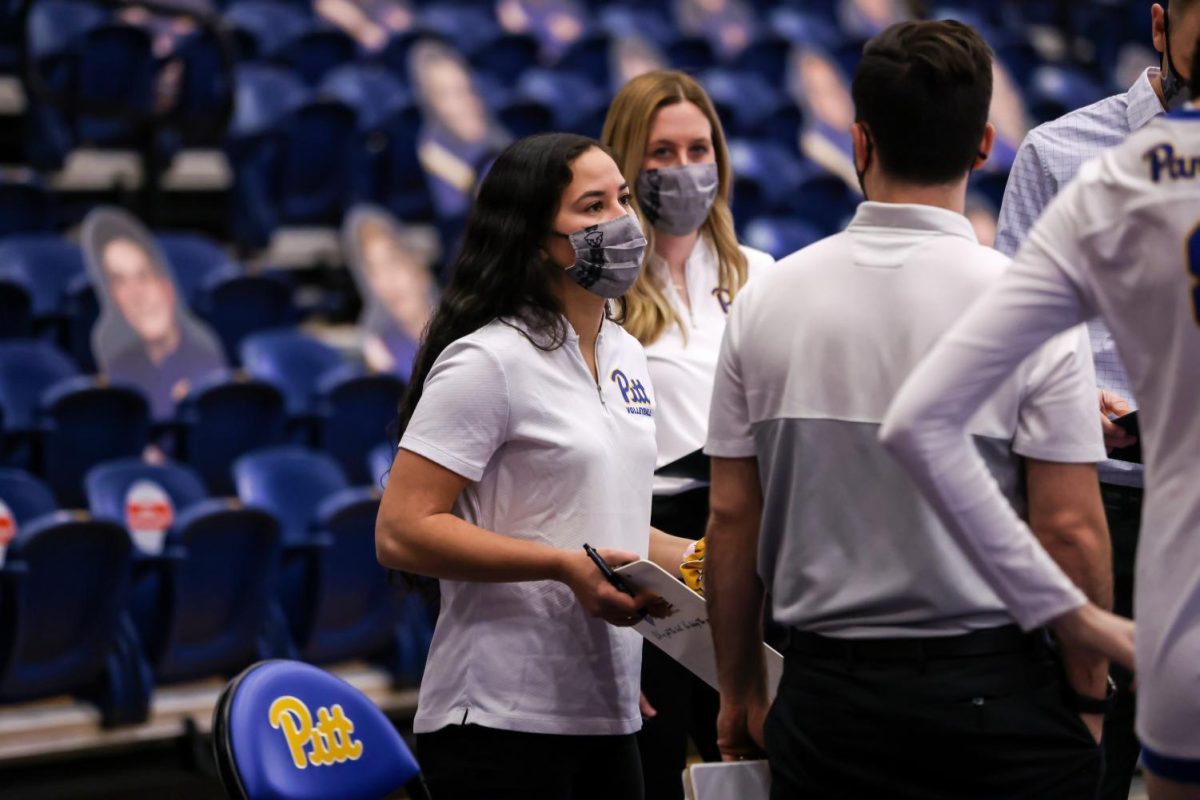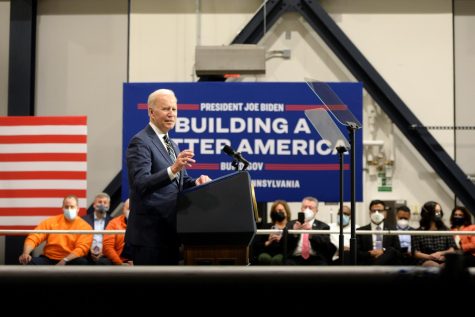Editorial: DeVos shouldn’t shy from responsibility for low reading proficiency nationwide
Betsy DeVos, secretary of education, speaks during the Wall Street Journal CFO Network conference in Washington, D.C., on Tuesday, June 11.
November 4, 2019
The National Center for Education Statistics, a research arm of the federal Education Department, released the results of their national assessment last Wednesday, revealing that American fourth and eighth graders’ reading proficiency is getting worse.
According to the assessment, two out of three children in the United States don’t meet reading proficiency standards as set by the National Assessment of Educational Progress. That’s a majority of students across the country who aren’t up to par with their reading of literary and academic tests.
Education Secretary Betsy DeVos, however, doesn’t concede that increased funding to poor-performing schools would help resolve what she calls a “student achievement crisis,” preferring to place the onus for the dismal test scores on low-income parents.
While only 37% of fourth grade students were proficient in reading in 2017, this year’s results — called the “nation’s report card” — show that 35% of fourth graders are proficient in reading. Only 36% of eighth grade students were proficient in reading in 2017, compared to 34% of eighth graders in 2019. The average reading score for fourth graders decreased in 17 states this year from 2017, and the average eighth grade score decreased in more than half of the states.
Evidently, there’s something — or several things — wrong with the way we teach reading proficiency across the country. DeVos responded to the low results in a statement.
“Think about the mom or dad who cannot read, and so does not read to their own children at bedtime,” DeVos said. “Think about what that portends for their lifelong learning.”
DeVos unsurprisingly but still disappointingly seems not to grasp the issue at hand. She has consistently ignored calls to increase school funding at the worst-performing schools around the country, instead favoring programs that funnel tax money into private, religious and charter schools. And in this statement, she puts the blame for poor performance on parents.
Whether parents can’t read to their children at bedtime because they can’t read or because they work several jobs to make ends meet, the fact that American students did poorly on reading tests isn’t their parents fault. As the head of the Education Department, DeVos should know that schools are responsible for teaching children how to read at a proficient level, and putting the onus on parents is a way for DeVos to distance herself and her department from the responsibility they must take for poor academic funding and policies.
According to Peter Afflerbach, a reading and testing expert at the University of Maryland, recent research on reading education reveals many schools across the country aren’t challenging elementary students enough. Many give younger students short passages rather than longer, more complex texts.
DeVos called the results evidence of a “student achievement crisis,” implying that students aren’t trying hard enough. But it’s DeVos and the Education Department who are failing students and not the other way around. She should focus more on providing funding to schools with struggling students than on her privatization agenda. And she should also make it a priority to work with states on their curriculums to ensure that their programs are challenging enough to promote learning — the entire point of education.
DeVos needs to hold herself and states accountable for the failing grade on our nation’s report card, but she unfortunately doesn’t seem to be doing either.








